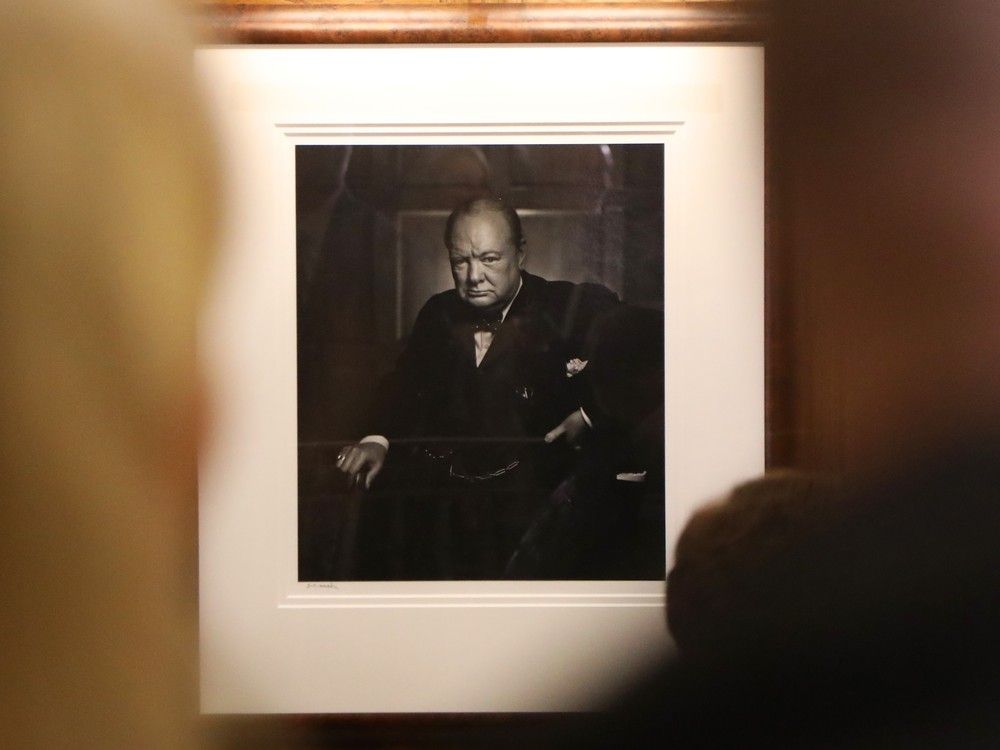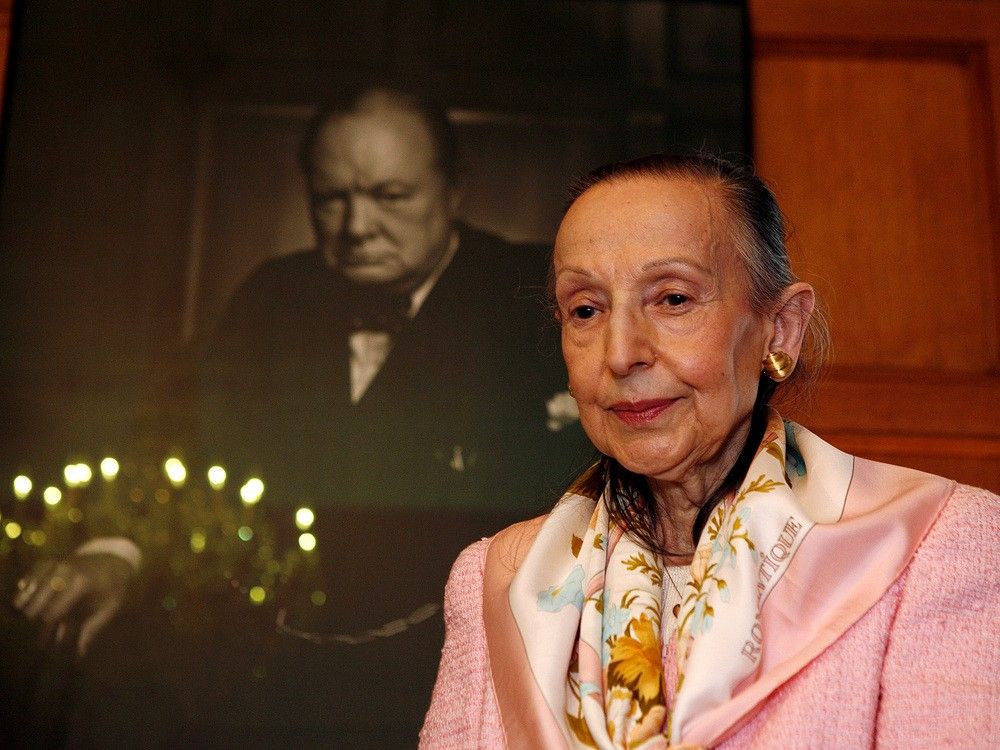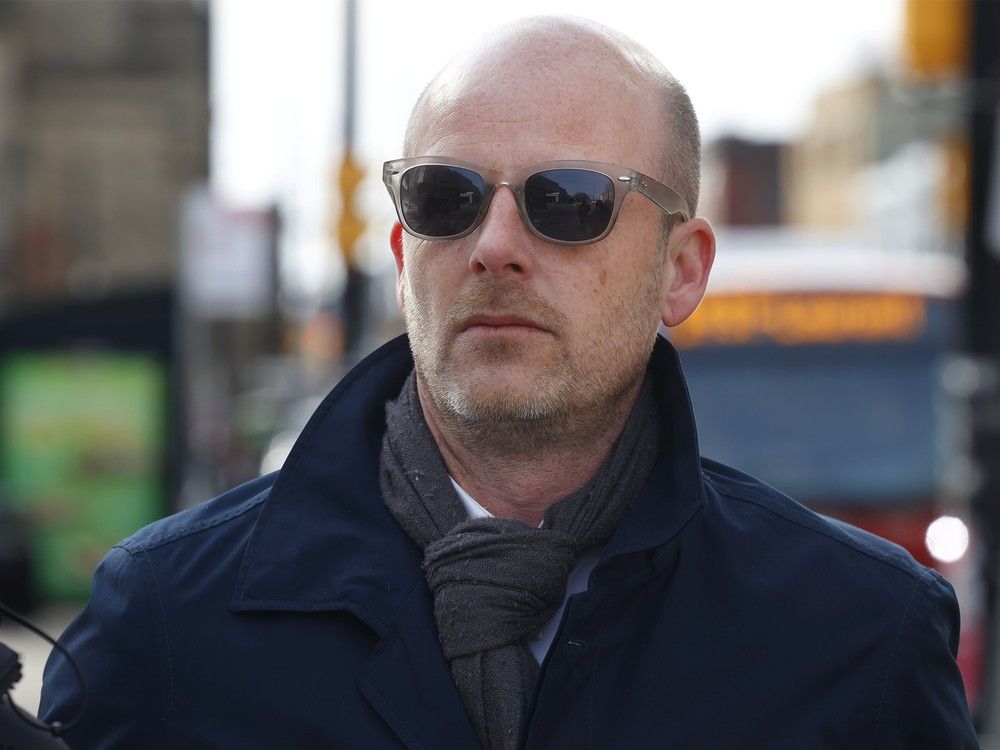In what the judge likened to a crime against history, culture and national pride, the thief who stole the original Yousuf Karsh portrait of Winston Churchill from the Château Laurier hotel has been sent to jail.
Ontario Court Justice Robert Wadden sentenced Jeffrey Wood, 44, to two years less a day in jail. Wood has expressed remorse and
pleaded guilty in March
to theft over $5,000, forgery and trafficking.
Wood’s lawyer, Lawrence Greenspon, said the sentence was harsh for a property crime by a client who had no criminal record.
In a decision released Monday, Wadden detailed the significance of the crime, noting the famous portrait was a symbol of resolve, with a wartime leader scowling after Karsh snatched a cigar from the stubborn British prime minister.
The photograph, known as Roaring Lion, was taken by Karsh after Churchill delivered a speech in Ottawa in 1941.
“My portrait of Winston Churchill changed my life,” Karsh once said. “I knew after I had taken it that it was an important picture, but I could hardly have dreamed that it would become one of the most widely reproduced images in the history of photography.”
The famous portrait was essentially a gift to Canada, the judge said, noting it captures pride, anger, strength of the free world, and the triumph of good over evil.
The judge said Wood went to great effort to cover up his crime by replacing the iconic photo with a cheap fake and a lousy forged signature.
Wood stole the original print sometime between Christmas 2021 and Jan. 6, 2022, at the height of the COVID-19 pandemic, when the historic hotel was quiet.
The crime went undetected until August, when hotel employee Bruno Lair noticed the portrait was hanging a little crooked.
Lair, assistant director of engineering for the hotel, would know that because he helped hang the iconic portrait some 26 years ago.
“I could see something was wrong. We don’t hang on wires,” he said on his way out for a cigarette break at the courthouse.
When Lair looked closer, he saw a wire and holes where screws had once secured the portrait to the wood-paneling of
the hotel’s reading lounge
. He then told the hotel general manager, who reported the theft to police.

Sadly, the man who has worked at the hotel for more than 30 years was subjected to police questioning and a lie-detector test, which he passed. (Polygraphs are not legally allowed in Canadian courts as evidence in light of significant flaws, which have led to wrongful convictions.)
Hotel manager Geneviève Dumas said the case was awful for morale because some staff were wrongly treated as suspects.
The hotel did not store surveillance footage long enough to capture the crime, so there is no video account of the theft.
Police appealed for the public’s help and asked to send them photographs of the Roaring Lion. Hotel visitors and guests sent in enough photographs to pinpoint the last time the original had been on the wall, and, days later, when the fake had replaced it.
A detective, using online searches, found that a “Roaring Lion” print had been sold at auction months earlier, and asked for help from counterparts overseas to get the auction house records.
It turned out that Wood had used his real name and address when he negotiated with Sotheby’s auction house.
The Ottawa police investigation found Wood had contacted the auction house months before he stole the print, falsely claiming he acquired it from the Karsh estate. The print was sold to a buyer
in Italy, where Ottawa detectives went to retrieve it
.
According to the police investigation detailed in court, Wood left for Mexico on Jan. 5, 2022. His phone records showed he called a storage company on Dec. 27, 2021. Police later searched Wood’s storage locker, where they found and seized another online print of the Roaring Lion.
Police also found a bar of Irish Spring soap and a toothbrush, which they swapped for DNA. That provided a match to another DNA sample lifted from the tape that Wood used to frame the fake portrait.

The iconic print was valued and insured for $20,000, but it had been damaged during either the theft, storage or shipping. So it ended up being sold for 5,292 British pounds (almost $10,000 CDN). After fees, Wood received just $4,503.85, according to his bank records.
In a touching impact statement read into court by the prosecutor, Estrellita Karsh detailed why the portrait and the hotel had been so special. Her late husband kept a studio on the sixth floor in the early 1970s, and later in the early 1980s they moved into a suite at the landmark hotel.
“It was not just where we lived and worked. It was our home and the wonderful staff became our family,” she wrote.
When the couple moved out of the hotel, they gifted a collection of historic prints to express their gratitude for the years of hospitality. The only stipulation was that the photographs needed to be displayed in the hotel.
She said it was fitting the Churchill portrait was displayed in the reading lounge, where she spent good times with her husband and friends. She said the Churchill portrait was especially meaningful because it had become one of the “most iconic images in photography.”
“I’m delighted that my husband’s portrait is back in the home where it belongs” she said last year.
She lived long enough to
see the return
of her husband’s famed portrait, but died in March at 96.
Related
- ROARING LION: Thief who stole iconic Winston Churchill portrait pleads guilty
- Château Laurier welcomes return of the Roaring Lion — with extra security



